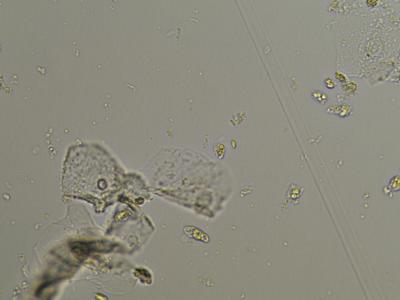Artificial Intelligence
With the motivation of no good data sources available for all diseases (from generic to chronic) and their treatment courses, a new dataset is synthesized by exploring several medical websites and resources. It provides the precaution list corresponding to over 1000+ diaganosis. prec\_t.csv : (did, diagnose, pid) = (Disease identifier, Disease name, treatment course). This dataset can be utilized for many machine learning or deep learning based healthcare applications.
- Categories:
 6343 Views
6343 Views
Depressive/Non-depressive tweets between December 2019 and December 2020 originated largely from India and parts of Indian subcontinent. Sentiment Scores alloted using text blob. Tweets are extracted specifically keeping in mind the top 250 most frequently used negative lexicons and positive lexicons accesed using SentiWord and various research publications.
Tweet Amount : 1.4 Lakhs
- Categories:
 994 Views
994 ViewsDataset used in the article "An Ensemble Method for Keystroke Dynamics Authentication in Free-Text Using Word Boundaries". For each user and free-text sample of the companion dataset LSIA, contains a CSV file with the list of words in the sample that survived the filters described in the article, together with the CSV files with training instances for each word. The source data comes from a dataset used in previous studies by the authors. The language of the free-text samples is Spanish.
- Categories:
 487 Views
487 Views
Dataset asscociated with a paper in 2021 IEEE/RSJ International Conference on Intelligent Robots and Systems
"Talk the talk and walk the walk: Dialogue-driven navigation in unknown indoor environments"
If you use this code or data, please cite the above paper.
- Categories:
 238 Views
238 ViewsThis is a CSI dataset towards 5G NR high-precision positioning,
which is fine-grained, general-purpose and 3GPP R18 standards complied.
The corresponding paper is published here (https://doi.org/10.1109/jsac.2022.3157397).
5G NR is normally considered to as a new paradigm change in integrated sensing and communication (ISAC).
- Categories:
 6311 Views
6311 Views
In large-scale multiobjective optimization, too many decision variables hinder the convergence search of evolutionary algorithms. Reducing the search range of the decision space will significantly alleviate this puzzle. With this in mind, this paper proposes a fuzzy decision variables framework for large-scale multiobjective optimization. The framework divides the entire evolutionary process into two main stages: fuzzy evolution and precise evolution.
- Categories:
 176 Views
176 ViewsLeucorrhea microscopic data set is a set of leucorrhea microscopic images, which is used in object detection task. The datasets are collected from the Sixth People’s Hospital of Chengdu (Sichuan Province, China). The samples were went flow diluted, stirred and placed, and imaged with a microscopic imaging system. The clearest 3 images were collected for each view of each sample with Tenengrad definition algorithm. The dataset we collected includes 1552 groups of views with 4656 jpg images. The Resolution of images are 1200×1920.
- Categories:
 424 Views
424 ViewsThe University of Turin (UniTO) released the open-access dataset Stoke collected for the homonymous Use Case 3 in the DeepHealth project (https://deephealth-project.eu/). UniToBrain is a dataset of Computed Tomography (CT) perfusion images (CTP).
- Categories:
 3486 Views
3486 ViewsThis dataset includes the 3-day record (December 6 to December 8, 2020) of a plantation in the city of Guayaquil - Ecuador. This dataset includes the recording of the following variables: Relative Humidity, Environment Temperature, Soil moisture, Light intensity, and Rain Occurrence. An arduino uno module was used to record data, connected to the following sensors:
- Categories:
 66746 Views
66746 ViewsMost of existing audio fingerprinting systems have limitations to be used for high-specific audio retrieval at scale. In this work, we generate a low-dimensional representation from a short unit segment of audio, and couple this fingerprint with a fast maximum inner-product search. To this end, we present a contrastive learning framework that derives from the segment-level search objective. Each update in training uses a batch consisting of a set of pseudo labels, randomly selected original samples, and their augmented replicas.
- Categories:
 2040 Views
2040 Views




